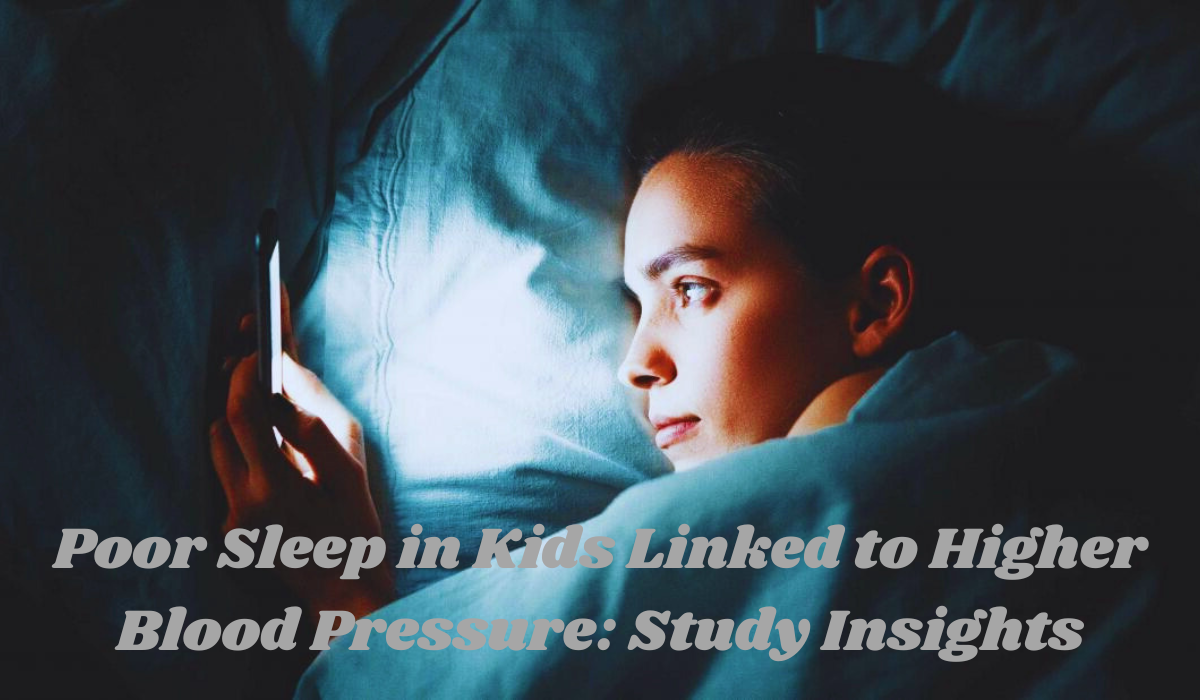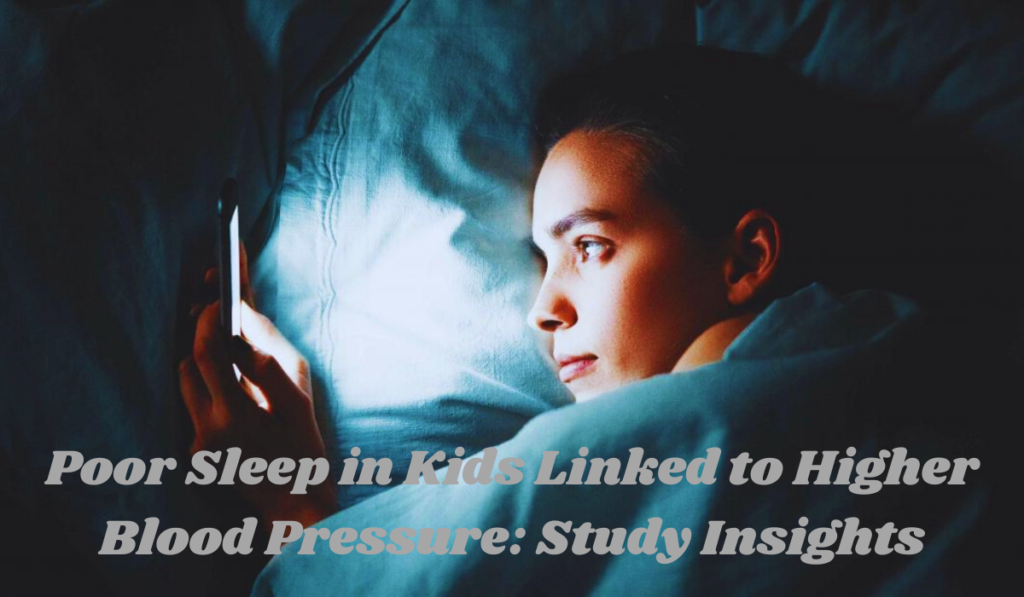Poor Sleep in Kids Linked to Higher Blood Pressure: Study Insights – 2024!

Overview
A new study finds that children who don’t get enough sleep may experience higher blood pressure. The research highlights the importance of good sleep habits for children’s overall health.
Key Findings
- Study Details: Published in the journal Pediatrics, the study analyzed the sleep patterns of 539 children aged around 14.6 years old.
- Average Sleep: The kids in the study slept for an average of 9.1 hours per night.
- Blood Pressure Link: Those who went to bed earlier and slept longer had better blood pressure readings during the day.
Impact of Sleep on Blood Pressure
Longer Sleep Benefits:
- Children who slept longer had lower blood pressure levels.
- This was true regardless of their age, gender, body weight, or day of the week.
Unexpected Findings:
- Surprisingly, longer sleep was sometimes linked to a smaller drop in blood pressure at night, known as “nocturnal dipping.”
- This was often seen in children who reported excessive sleep but may not have been sleeping well (e.g., due to sleep apnea or using phones in bed).

Poor Sleep in Kids Linked to Higher Blood Pressure: Study Insights – 2024!
Expert Insights
- Dr. Amy Kogon, the study’s lead author, emphasized that sleep is crucial for managing blood pressure, similar to diet and exercise.
- Michael Gradisar, head of sleep science at Sleep Cycle, noted that the primary challenge for kids’ sleep isn’t screen time but their natural body clocks, which tend to delay sleep and waking times.
Factors Influencing Blood Pressure in Children
- High Blood Pressure Prevalence: According to the CDC, about one in seven children aged 12 to 19 has high blood pressure.
- Risks: Kids with high blood pressure are at increased risk for heart attacks and strokes later in life.
Other Influencers: Obesity, physical activity, diet, and stress also play roles in affecting blood pressure.
Recommended Sleep Duration
- Ages 6-12: 9-12 hours per night.
- Ages 13-18: 8-10 hours per night.
Despite recommendations, many kids don’t get enough sleep. Surveys show that:
- 6 out of 10 middle schoolers and
- 7 out of 10 high schoolers don’t get enough sleep on school nights.
Tips to Improve Kids’ Sleep
- Morning Light Therapy: Exposure to bright light in the morning can help reset kids’ body clocks and improve sleep patterns.
- Consistency: Keeping a regular sleep schedule can also help.
Future Research
- Next Steps: Dr. Kogon and her team plan to explore how improving sleep quality might affect blood pressure.
- Further Studies: They aim to gather more data on sleep quality and long-term sleep patterns in children with high blood pressure.

Conclusion
Good sleep is essential for children’s health, including maintaining healthy blood pressure levels. Encouraging better sleep habits could be a vital step in improving kids’ overall well-being. Physical Activity.
Adequate and high-quality sleep helps regulate blood pressure levels, which is vital for overall cardiovascular health. When children get enough restful sleep, their bodies are better equipped to handle stress, process information, and maintain a healthy immune system.
Encouraging better sleep habits, such as establishing a consistent bedtime routine, creating a conducive sleep environment, and limiting screen time before bed, can significantly enhance children’s overall health and quality of life.
These practices not only support better sleep but also foster improved physical and cognitive development, leading to better academic performance and emotional stability. Additionally, integrating regular physical activity into a child’s daily routine can further enhance sleep quality.
Engaging in activities such as outdoor play, sports, or even simple exercises can help regulate sleep patterns, reduce anxiety, and improve overall energy levels. By prioritizing both healthy sleep and regular physical activity, parents and caregivers can take vital steps toward ensuring their children’s well-being and setting them up for long-term health and success.
Sources
- Journal of Pediatrics
- Fox News Digital
- Centers for Disease Control and Prevention (CDC)
- American Heart Association
- American Academy of Sleep Medicine
For more information, visit Fox News Health.
This article summarizes the critical aspects of the study on sleep and blood pressure in children, offering insights into the importance of sleep and practical tips for improvement.



Your point of view caught my eye and was very interesting. Thanks. I have a question for you. https://accounts.binance.com/ro/register-person?ref=V3MG69RO
Thanks to appriciate.
Your article helped me a lot, is there any more related content? Thanks!